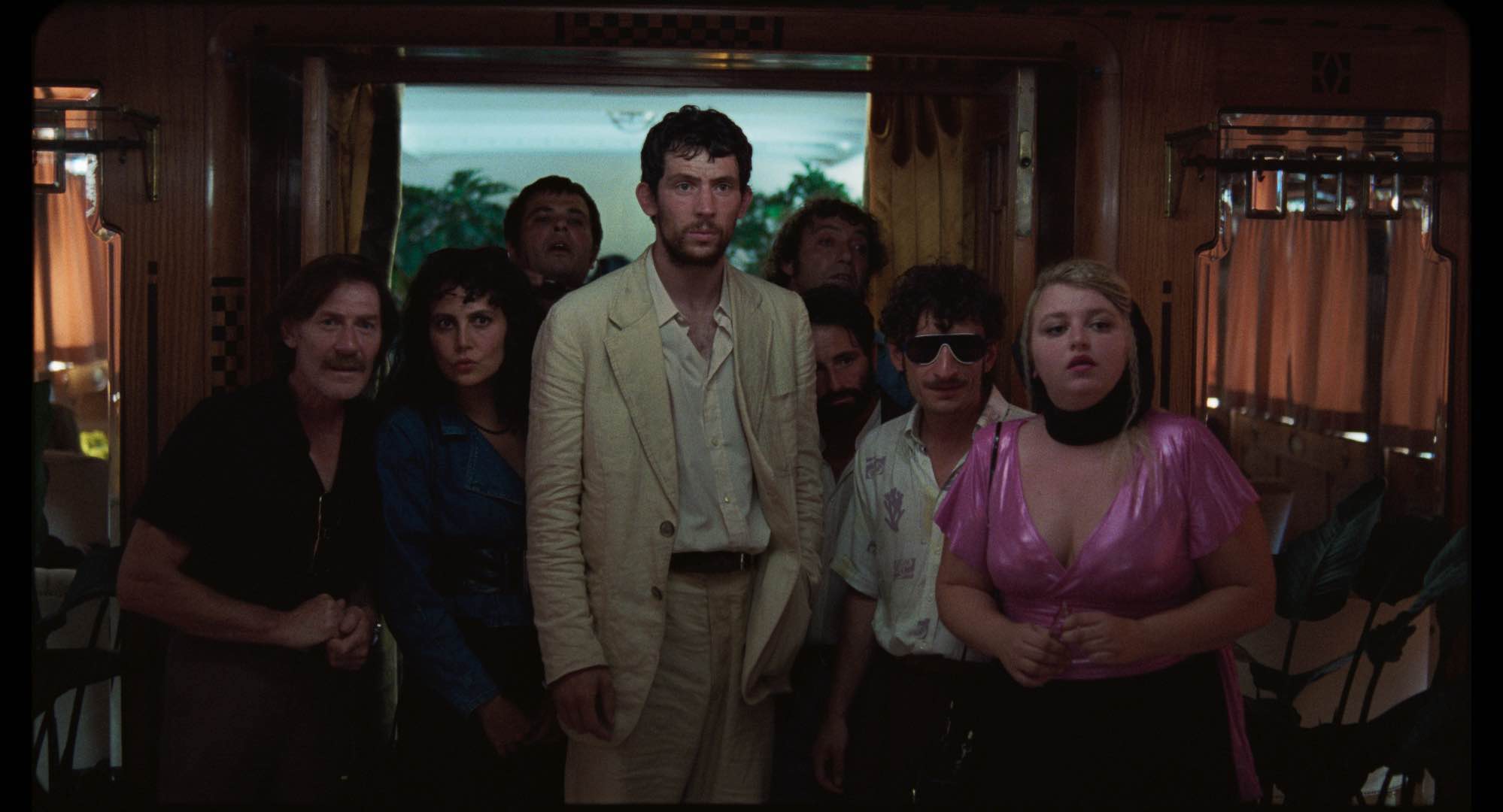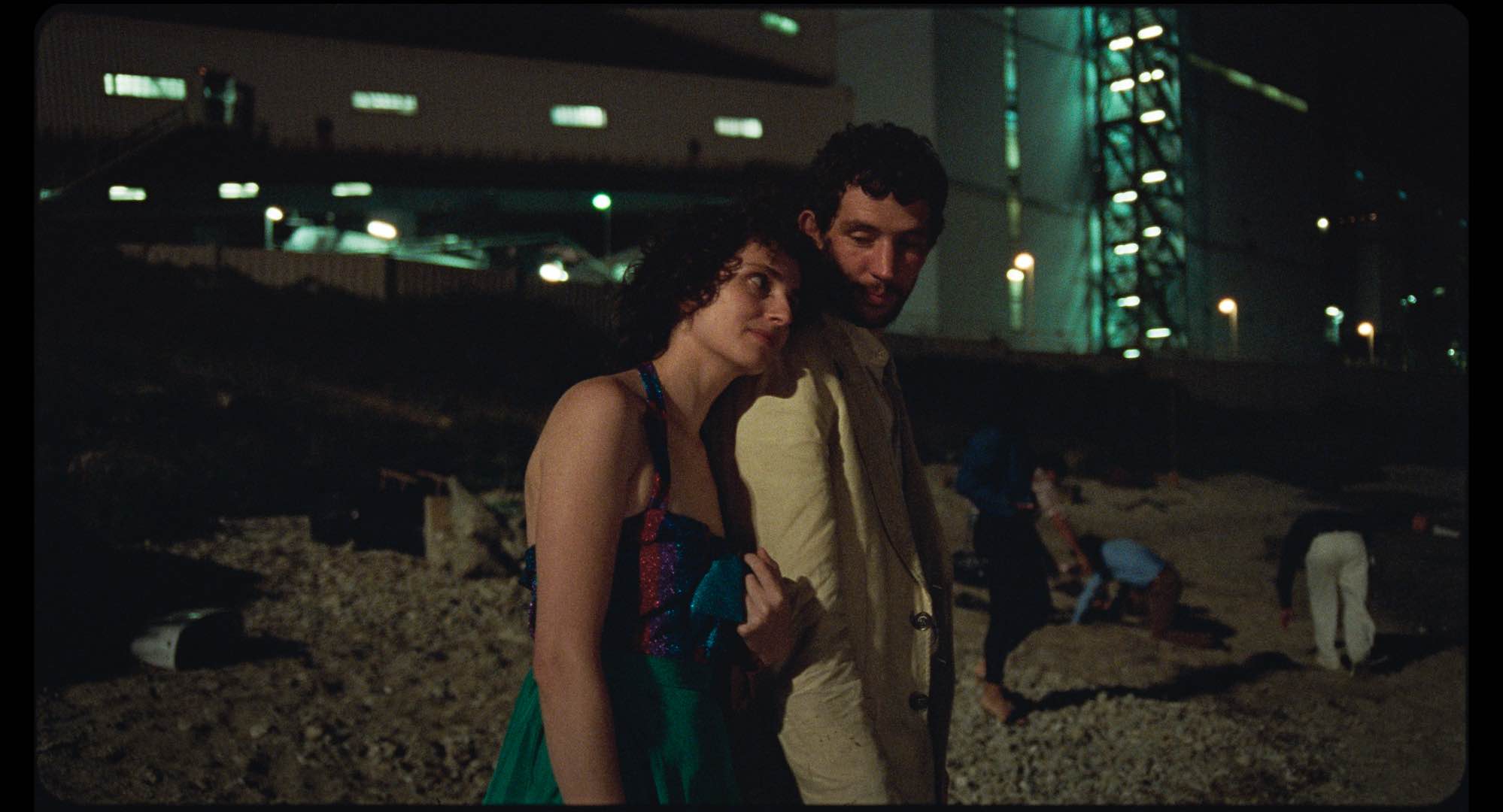
It’s rare these days to find yourself happily lost in a movie’s dream. We have plenty of allegedly fantastical pictures begging for our attentiveness: projects based on already existing gazillion-dollar intellectual properties, puzzle movies with complicated, outlandish plots, classy horror films that strive to remind us, as if we needed reminding, that they’re part of a genre that deserves to be taken seriously. But Alice Rohrwacher's enigmatic and bracing La Chimera, its touch as glancing as a zephyr, asks more of us while demanding less. It’s the kind of movie you wake up from, as opposed to one you merely watch.
La Chimera takes place in the Italian countryside, around Tuscany, circa 1980, though it largely exists in a place outside time. Arthur (Josh O’Connor) is a mystery man, an Englishman, returning to his ramshackle home in the hills after serving a jail sentence. It turns out he’s a rogue archaeologist, part of a rowdy troupe of grave-robbing ne’er-do-wells known as tombaroli; they poke around the ruggedly magnificent rural terrain in search of Etruscan treasures, little pots and vessels formed by ancient hands, which they sell—through a fence—to an enigmatic broker known only as Spartaco. Arthur, though he’s an obvious outsider, is the group’s most valuable member: he has a gift for locating artifacts, sussing them out with a forked stick used as a dowsing rod. When he hits treasure, his brain goes fuzzy and faint, as if he'd been seized by a spiritual vision—in a delectably old-fashioned bit of camera magic, we see him literally turning topsy-turvy. His pals cheer boisterously when this happens, and commence digging away. Sure enough, they find stuff, turning their spoils this way and that in their stubby fingers, delighting partly in the historical wonder of these objects, but mostly calculating their possible value in lira.
Arthur likes money too, or he wouldn’t be there. But he also loves these objects, “things many eyes have seen,” purely for what they represent, a link with the spirits of the past. Yet Arthur—who shambles through much of the movie in a rumpled linen suit, a garment whose very fibers are long past caring—isn't as happy-go-lucky as the others. He's haunted by a ghost, that of the woman he still loves, Beniamina, who has disappeared from his life under circumstances that are never explained. All we know is that she is really and truly gone, even though her aged and slightly addled mother, Flora (played, wonderfully, by Isabella Rossellini), insists she’ll be coming back. Arthur knows better, yet he’s tormented by visions of Beniamina; he sees her in an aura of sunlight, tugging at a single red thread—possibly part of her bright crocheted dress—which seems to tether her to the very surface of the earth.

What does any of it mean? There are moments in La Chimera where you’re likely to feel unsure about what’s happening. But Rohrwacher isn’t asking us to do any heavy lifting. This story comes at us not in bundles of ready-to-process information but in waves—one idea washes out as another comes in, and we gradually get a sense of the whole. As Arthur struggles to restart his life, one without Beniamina, he befriends Flora’s maid, Italia (Carol Duarte), a loopy charmer perched on Olive Oyl legs. Flora has a secret—two secrets, actually—which Arthur vows to help her keep. Meanwhile, his compatriot thieves carry about their usual business, not just robbing tombs, but drinking, laughing, carousing. At one point they dress up in outlandish swaths of satin for a village parade. They’re like Fellini’s unruly dreamers, affable good-for-nothings who do what it takes to get by, reinvigorated for the 21st century.
This is the half-real, half-fanciful Italy of Rohrwacher—also the director of the numinous rural parable Happy as Lazzaro, and the semi-autobiographical reverie The Wonders—who grew up around Tuscany and Umbria. Shot by the gifted cinematographer Hélène Louvart, La Chimera shows us a part of the world where scrubby grass meets the glory of the sea, where majestically decrepit houses, their walls painted with soft-colored whispers of flowers and birds, refuse to give up on their past glory. Rohrwacher brushes the whole thing with a wash of romantic mysticism—the lines between what we can believe in and what's beyond our understanding are smudged.
O’Connor’s Arthur, the drifting soul at the center of this story, is our only true guide. O’Connor played the young Prince Charles in The Crown, and a lonely sheep farmer in God’s Own Country; he’ll soon appear in Luca Guadagnino’s Challengers. In La Chimera, his Arthur is a man already half lost in the stars, trying to reclaim his space on earth but not sure where to start. We see flashes of his bad temper, moments in which his eyes go steely and blank. This is a hero we can’t fully trust; maybe we don’t always like him. But in a moment late in the film, as he stands nose-to-nose with a long-lost goddess, he relocates a lost version of himself. He sees a story in her face, and it becomes his own. He walks away with nothing, while also carrying the greatest treasure; it spills from his hands, a secret too big to keep.
More Must-Reads from TIME
- Cybersecurity Experts Are Sounding the Alarm on DOGE
- Meet the 2025 Women of the Year
- The Harsh Truth About Disability Inclusion
- Why Do More Young Adults Have Cancer?
- Colman Domingo Leads With Radical Love
- How to Get Better at Doing Things Alone
- Michelle Zauner Stares Down the Darkness
Contact us at letters@time.com